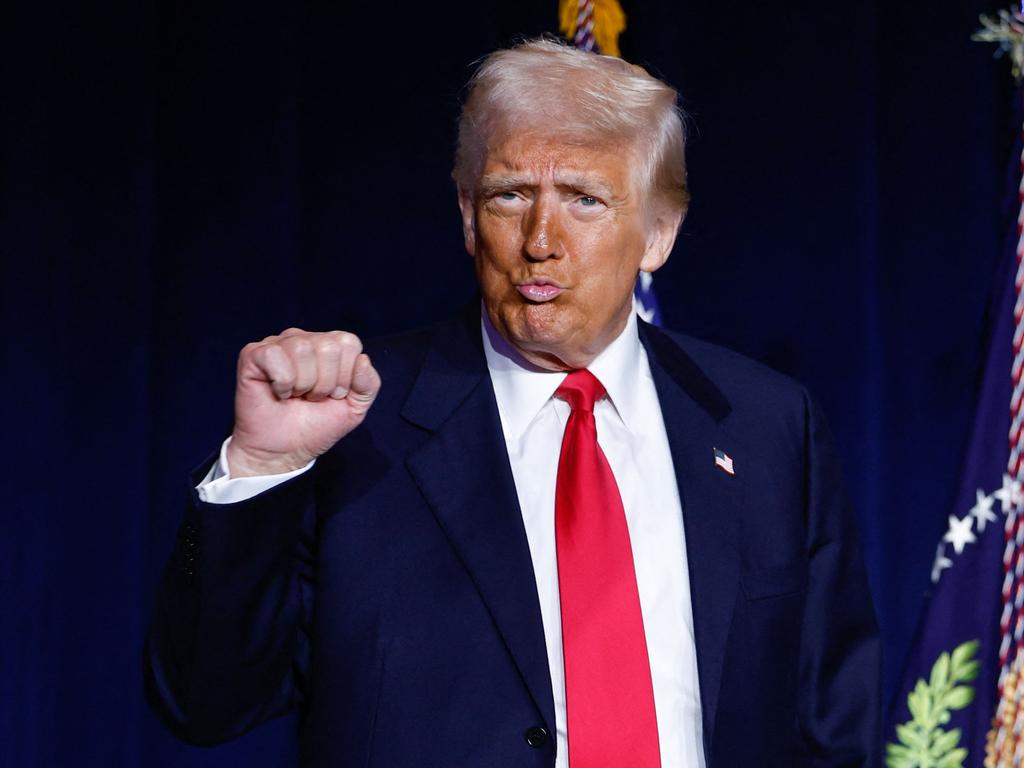Sweet nothings and long talks: Donald Trump takes very different tactic with Vladimir Putin


Routinely, he opens with an extreme position and a great deal of threatening bluster. With Putin, by contrast, it’s so far all cooing and billing, whispering sweet nothings in adolescent length telephone conversations.
Trump may yet produce a decent deal out of all this. He’s certainly astonishingly energetic in what are still the very early days of his second presidency. All reform, all good government, needs energy in the executive, so the saying goes. Trump exhibits loads of energy in the executive.
But in this instance he seems to be giving away so much to Putin so early. It’s very unclear that this is the best way to optimise Ukraine’s position or Western strategic interests.

It’s realistic of Trump to recognise, as his Defence Secretary, Pete Hegseth says, that Ukraine won’t reclaim all the territory it controlled before 2014. Some critics may feel acknowledging this so publicly is to give Putin a needless early victory. But actually the sheer obviousness of this reality, and the widespread, sustained, diplomatic discussion of a ceasefire in place, and even a permanent settlement along these lines, has been going on for so long that it’s not too much of a big deal for Trump to publicly acknowledge that.
But there’s quite a bit else in the various Trump administration statements that seem overly generous to Putin. For a start, there’s the immediate declaration that Ukraine cannot join NATO.
This is very pleasing to Putin. It was certainly realistic to think that Putin needed a face saving road to peace after his catastrophic and murderous war; therefore NATO membership for Ukraine might always have been unrealistic.

But to concede this publicly, pre-emptively and for absolutely nothing in return, turns Trump’s art of the deal upside down.
As Hegseth himself has pointed out, any durable peace must involve credible security guarantees for Ukraine. Otherwise Russia can take a breather, digest the territory it’s acquired, and come back to finish the job in a few years time.
Yet the US has also declared it won’t be part of any peace-monitoring NATO force NATO might deploy in Ukraine. That is consistent with Trump’s long standing opposition to American troops becoming entangled in endless conflicts around the world. But again, why give that gift to Putin in advance? And for nothing in return?
Worst of all, perhaps, the Americans also made it clear that the troops of any European NATO members, such as Britain and France, deployed in Ukraine, would not themselves enjoy the NATO Article 5 guarantee.

In other words, if Russian forces, in uniform or in the minimal disguise of gray zone conflict mufti, should attack European NATO troops, those NATO troops would not enjoy NATO protection. Thus their effect in disincentivising Putin from one day resuming conflict is much diminished. It may be that the Trump administration felt that without this caveat, the presence of NATO troops in Ukraine could effectively grant Ukraine de facto NATO membership. But again, where is the strategic, negotiating sense in ceding this to Putin in advance?
Even Trump directly talking to Putin without the involvement of Ukraine’s president, Volodymyr Zelensky, echoes the worst American practices of the past in negotiating weak allies’ fates rather than letting allies negotiate for themselves.
As against that, almost as soon as he’d spoken to Putin, Trump rang Zelensky.
On top of all this, Trump and Putin committed to “visiting each others’ countries”. That brings an end to the campaign to isolate Putin, to make him pay a diplomatic price for his military aggression. And the Americans certainly won’t be enforcing any International Criminal Court arrest warrant against Putin.

All this constitutes Putin’s fondest diplomatic dream.
Yet what has Putin given in return? So far, nothing at all.
It may be that the Trump administration feels peace is more likely if Putin is thoroughly reassured. But Putin had absolutely nothing to need reassurance about when he decided to invade Ukraine. The invasion originated in Putin’s bizarre ideological fixations, in his routine dictator’s desire for ever greater power, and in his worry, not that Ukraine would become a military threat to Russia, but that it would become a successful Western facing society which would remind his own people of how much they’ve had to give up under Putin.
You would have to think Trump has given Putin great strength in the forthcoming negotiations.
For all that, Trump would surely argue that each negotiation is unique. Trump believes he understands Putin and can do business with him. And of course, every single thing that Trump has given to Putin, Trump can take back from Putin.
It has also always been a deep part of Trump’s strategic thinking to try to bring Russia out of China’s orbit, or at least lessen the degree of Beijing’s influence in Moscow.
If Trump finally can bring about an end to the fighting, with Ukraine secure behind albeit diminished borders, and Putin somewhat resocialised into polite international company, and all of that is a huge, huge if, then Trump’s highly individualistic and unorthodox practices will have been worthwhile.
But it all has the look of a huge gamble.





In the matter of Ukraine, and the Russian dictator, Vladimir Putin, Donald Trump has somewhat confusingly reversed his normal pattern of extremely robust negotiation.